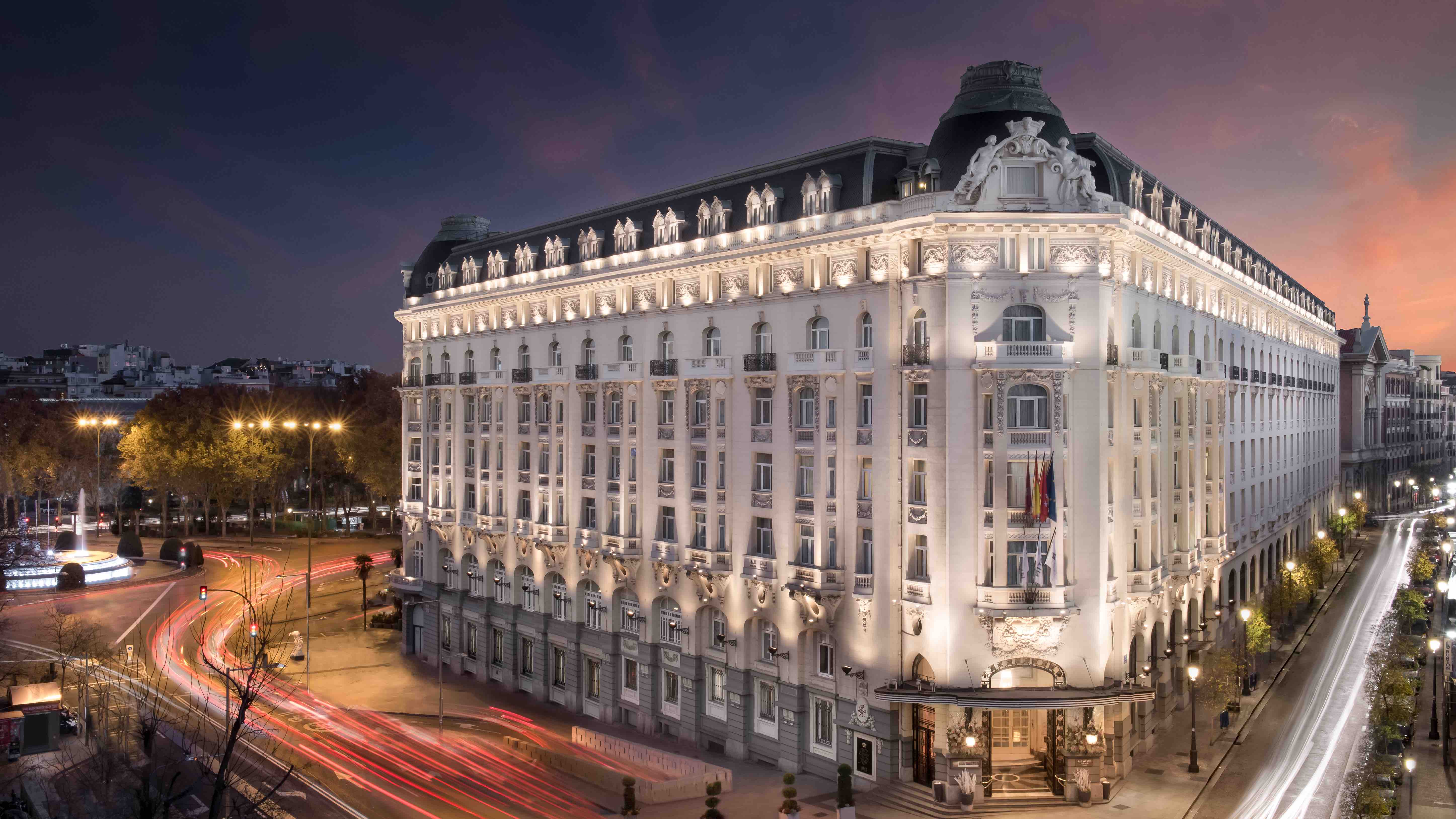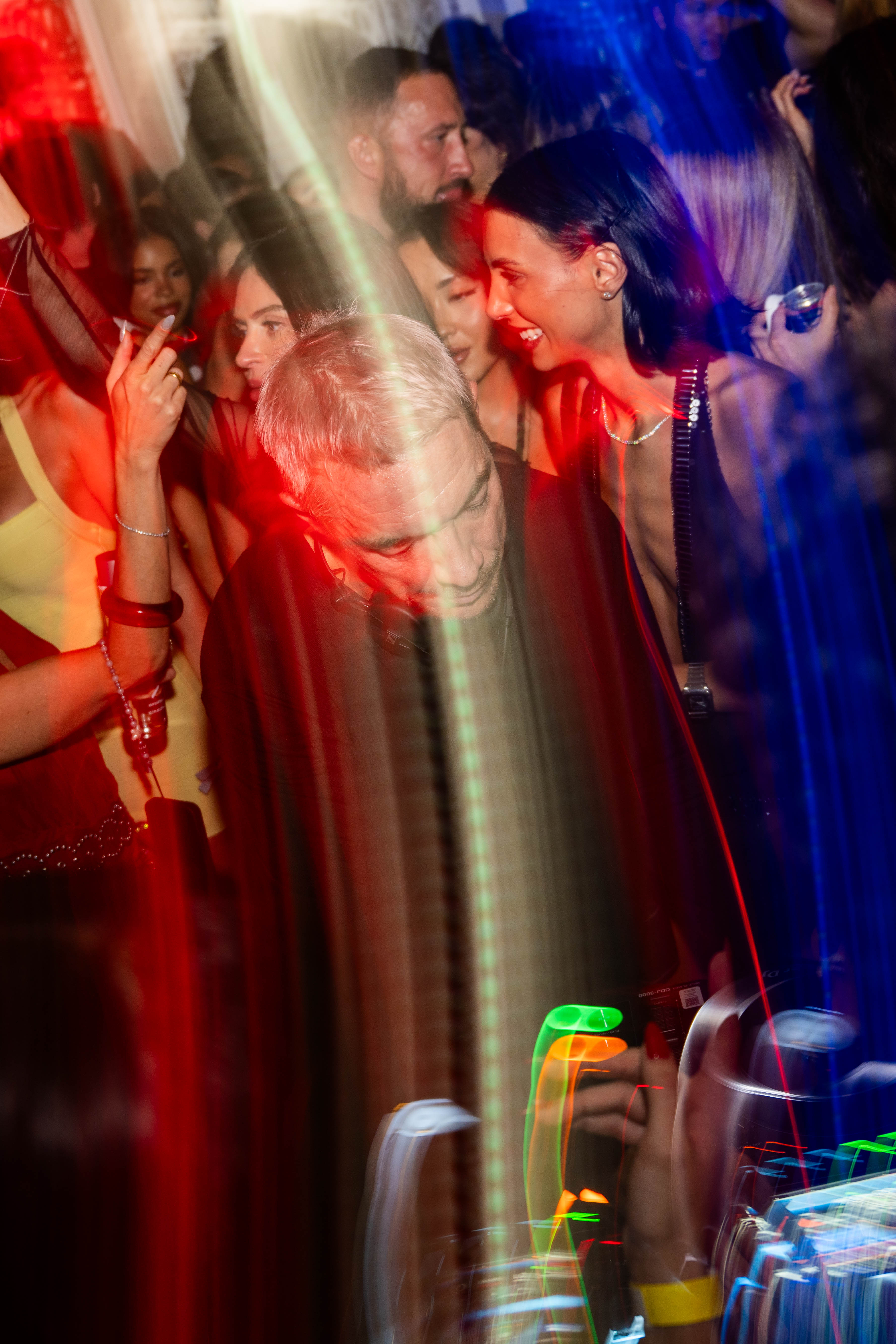

_“The world is on the move._
_On board are more shipwrecked souls than successful seafarers. Thousands of desperate people die en route, before they can complete the crossing to the promised land, where even the poor are rich and everyone lives in Hollywood._
_The illusions of any who manage to arrive do not last long.”_
—“Shipwrecked,” from _Hunter of Stories_ by Eduardo Galeano
1\. Displaced—Refugee
Incarcerated—Prisoner, fugitive
Asylum—Exile
SDF (Sans Domicile Fixe, “homeless”, in French)—Homeless Deported—Undocumented
Gentrified—Evicted Civil Wars—Migrant
2\. On March 30, 2018, _The New York Times_ ran a feature story called “Greece’s Island of Despair.” The piece describes the current situation on the Island of Lesbos, a place steeped in ancient Greek mythology and poetic lore. The island’s most famous resident was the poet Sappho (6th century BCE) whose lyric poetry was written to be sung and accompanied by a lyre. No music now. The _Times_ reports that some 5000 refugees, primarily from Syria and Iraq, live in tents and are packed into a refugee camp designed for half that number. Pope Francis has likened the conditions to those in a concentration camp. Accompanying the piece is an arresting image by photographer Mauricio Lima: a picture of tens of thousands, perhaps more, discarded flotation devices used by migrants on their way from Turkey to Eftalou Beach on Lesbos, too many to count.
In February, _The Los Angeles Times_ reported that “LA’s Homelessness (population has) surged 75% in six years.” Reporter Gale Holland says the crisis has been decades in the making, beginning with deinstitutionalization under Ronald Reagan and continuing through the recessions of the 1990s and 2008, and compounded by historic levels of inequality and gentrification.
According to a report on BBC News, the United States incarcerates 724 out of every 100,000 of our residents. Next on the list is Russia with 581 per 100,000. England and Wales are at about the worldwide midpoint with 145 per 100,000.
In 2016, the United Nations estimated that 13.5 million Syrians required humanitarian assistance out of a pre-war population of approximately 22 million. Of the 13.5 million needing aid, more than 6 million are internally displaced within Syria, and around 5 million are refugees outside the country.
On the March 16th episode of _This American Life_, reporter Lizzie Presser did a segment called “We Keep the Wall Between Us as We Go.” The slug line was: “After their mother was deported to Mexico, the Marin siblings faced an impossible choice: stay or go?” The piece was about Gloria Marin—a mother of four kids, all American citizens—who was deported to Mexico when her youngest child was 7. Needless to say, no good things happened. A half million U.S.-born minor children lost a parent to arrest, detention and deportation between 2009-2013.
In Orange County, in late March, busloads of Irvine residents— including a great many Asian immigrants—showed up at the Board of Supervisors to protest a potential plan to house displaced homeless people at shelters in Irvine and other OC cities. A federal judge has been trying to devise a strategy with local elected officials to house people ordered to leave an encampment along the Santa Ana River. In front of the huge crowd of opponents, the Board rescinded the shelter proposal.
Even in Canada, normally viewed as placid and peaceful, the global politics of exclusion and displacement rain down on certain peoples: according to reportage on (U.S.) National Public Radio (NPR), indigenous women make up just 3% of Canada’s population but account for a whopping 38% of the nation’s female inmates. No corner of the globe is immune from the desire to banish “the other” from our midst.
3\. For all too many people around the globe, the new sense of place is no place at all. DACA is back in the news—not in a good way. Now Trump has announced that he wants immigration judges to have deportation quotas. Civil wars and economic crises dis-place people at ever increasing rates. According to the UN High commissioner for Refugees (UNHCR), displaced persons totaled 65.3 million in 2015—one out of every 113 people on earth. This number does not count incarcerated people, homeless people, people evicted from their apartments, foreclosed upon, etc.
Gentrification re-places people—with other people who are wealthier.
By definition, foster children have no stable home. In the States, we have torn down housing projects as examples of urban blight—Cabrini Green in Chicago, Pruitt-Igoe in St. Louis—and replaced them with exactly nothing. Apparently, public policy dictates that no place to live is better than a place in public housing.
Deportation uproots and upends families—like the family of Gloria Marin. Incarceration—too often unwarranted and/or unjustified by the scale of the crime committed—forcibly removes “convicts” from their homes and communities and turns them into “inmates” in jails and prisons far from where they lived their lives.
We ignore the human costs, disrespect human dignities, shun human rights. Matthew Desmond’s 2017 Pulitzer Prize-winning book _Evicted_ is frighteningly eloquent on the topic of the exploitation of the poor (in the U.S.). He examines evictions to delineate a broader case against the immoral war poor people—payday lenders, rent-to-own retailers, check cashing places, and the like. In a plethora of various means, his argument can be expanded globally.
We have created a society in which people are both disposable and discarded—like refuse, like waste, like the islands of plastic trash floating in our oceans.
4\. _A fiction_:
No Place: A Place
She sits next to me.
I do nothing.
She has a small dog in her lap.
I hate dogs.
I order another drink.
I used to date the bartender.
I know everybody here.
She knows no one.
The lights flicker.
I drink bourbon.
She is staring at me.
I am not uncomfortable.
“I like your dog,” I finally say.
I lie well.
She wears huge fake eyelashes. Her skirt is short.
“Thank you,” she says.
She is not drinking.
I do not offer to buy.
“Would you like a drink?” she asks.
“I have one,” I say. I point to my glass.
“First time here,” she says. She points to the ceiling, but I know what
she means.
She points with her left hand. Three nails are long; two are short. “Yes,” I say.
She orders a beer.
“I’ll adopt your dog,” a man says. He sits to her right. I’m on her left. “OK,” she says.
She hands over the puppy.
Her lap is now empty.
“Are you OK?” I ask.
“Do you mind if I shoot up?”
“Please....’
“Please what?”
“Please do, I mean...”
She takes out her works. She ties up. On her right hand, three nails are short; two are long.
“I feel better now.”
It has been quiet. The jukebox kicks in.
We shout above the din.
“Do you believe?” she asks.
“In what?”
“I’m not sure...”
“Me either.”
“That girl has no clothes on.”
“She’s a dancer.”
“Do you want her?”
“Very much.”
We stop talking.
Separately we each order another drink.
The music grows louder.
My ex, the bartender, seizes up.
“I have medication!”
My new girl passes pills across the bar.
Nobody sees.
The outcome shines.
My ex comes to and wanders off to the other side of the bar to fix a drink.
“Where do you live?” new girl asks. “I don’t,” I say.
“Do you want to go?” she asks. “Yes,” I say.
We settle our tabs.
It gets much louder inside. “Where?” she asks.
“I know a place.”
We rise and leave into the night.
5\. Of course, the very wealthy are untethered to any single place in an entirely different manner. They are stateless, not placeless—they often own multiple homes in multiple countries; their business interests are multinational. McDonald’s operates 34,480 restaurants in 119 countries—out of a total of 194 recognized nations. Wealth renders nationalism impossible. Globalization knows no borders; it is unconstrained by place. Cyberspace only deepens the complexities and lessens allegiance, as we can see from the struggles to keep Big Technology accountable, from Facebook to Twitter and beyond.
Of course, it is not globalization per se that is the problem. It is unbridled and unfettered global capitalism—in a race to the bottom where wages, working conditions and quality of life are wholly subordinated to profiteering, unregulated and unchecked by any sufficiently powerful opposing force (labor unions, strong government institutions, etc.).
The phenomenon of placelessness exists differently at extreme ends of the socioeconomic spectrum. For the very rich, place exists largely as a commodity, something to buy. For the middle class, home ownership rates still hover near a fifty year low, denying them a stake, a “permanent place” to call home, as it were. For the poor, poverty and placelessness are the defining issues of the 21st century to date.
6\. _A poem (after paintings by Carlos Almaraz):_ Local News
Amidst skyscrapers and car crashes,
A burnt-out hulk on the Freeway overpass, Fiery skies, observed from above – Homeless families
Hunkered down in tents
Beneath the crumbling concrete Underneath the East LA Interchange: I’m driving home stuck in traffic: Reports on local news radio
Make no mention
Of people living
In tents and cardboard boxes.
7\. _Coda:_
Many members of religious orders take vows of poverty. The practice is said to have begun with the Franciscans in the 13th century in the West, but perhaps it began with the Buddha. In any case, most of the rest of us do not take such vows. If we are poor, we are involuntarily poor. Too many of us are becoming vagrants and itinerants, beggars and mendicants, against our will. A birthday or two ago, one of my daughters gave me a poster of a sketch variously attributed to the Australian street artist MEEK, or to the better- known Banksy. It depicts a homeless young man, bundled up against the cold, squatting, with a cup between his shoes. He is holding a cardboard placard that reads: “Keep your coins: I WANT CHANGE.”
We live in a time of radical exclusion, while what we truly need is a spirit, a philosophy and policies of radical inclusion in order to live and in order for all to thrive in the contemporary world.
Let’s make change.
* * *
Written by: Larry Fondation
 
_“The world is on the move._
_On board are more shipwrecked souls than successful seafarers. Thousands of desperate people die en route, before they can complete the crossing to the promised land, where even the poor are rich and everyone lives in Hollywood._
_The illusions of any who manage to arrive do not last long.”_
—“Shipwrecked,” from _Hunter of Stories_ by Eduardo Galeano
1\. Displaced—Refugee
Incarcerated—Prisoner, fugitive
Asylum—Exile
SDF (Sans Domicile Fixe, “homeless”, in French)—Homeless Deported—Undocumented
Gentrified—Evicted Civil Wars—Migrant
2\. On March 30, 2018, _The New York Times_ ran a feature story called “Greece’s Island of Despair.” The piece describes the current situation on the Island of Lesbos, a place steeped in ancient Greek mythology and poetic lore. The island’s most famous resident was the poet Sappho (6th century BCE) whose lyric poetry was written to be sung and accompanied by a lyre. No music now. The _Times_ reports that some 5000 refugees, primarily from Syria and Iraq, live in tents and are packed into a refugee camp designed for half that number. Pope Francis has likened the conditions to those in a concentration camp. Accompanying the piece is an arresting image by photographer Mauricio Lima: a picture of tens of thousands, perhaps more, discarded flotation devices used by migrants on their way from Turkey to Eftalou Beach on Lesbos, too many to count.
In February, _The Los Angeles Times_ reported that “LA’s Homelessness (population has) surged 75% in six years.” Reporter Gale Holland says the crisis has been decades in the making, beginning with deinstitutionalization under Ronald Reagan and continuing through the recessions of the 1990s and 2008, and compounded by historic levels of inequality and gentrification.
According to a report on BBC News, the United States incarcerates 724 out of every 100,000 of our residents. Next on the list is Russia with 581 per 100,000. England and Wales are at about the worldwide midpoint with 145 per 100,000.
In 2016, the United Nations estimated that 13.5 million Syrians required humanitarian assistance out of a pre-war population of approximately 22 million. Of the 13.5 million needing aid, more than 6 million are internally displaced within Syria, and around 5 million are refugees outside the country.
On the March 16th episode of _This American Life_, reporter Lizzie Presser did a segment called “We Keep the Wall Between Us as We Go.” The slug line was: “After their mother was deported to Mexico, the Marin siblings faced an impossible choice: stay or go?” The piece was about Gloria Marin—a mother of four kids, all American citizens—who was deported to Mexico when her youngest child was 7. Needless to say, no good things happened. A half million U.S.-born minor children lost a parent to arrest, detention and deportation between 2009-2013.
In Orange County, in late March, busloads of Irvine residents— including a great many Asian immigrants—showed up at the Board of Supervisors to protest a potential plan to house displaced homeless people at shelters in Irvine and other OC cities. A federal judge has been trying to devise a strategy with local elected officials to house people ordered to leave an encampment along the Santa Ana River. In front of the huge crowd of opponents, the Board rescinded the shelter proposal.
Even in Canada, normally viewed as placid and peaceful, the global politics of exclusion and displacement rain down on certain peoples: according to reportage on (U.S.) National Public Radio (NPR), indigenous women make up just 3% of Canada’s population but account for a whopping 38% of the nation’s female inmates. No corner of the globe is immune from the desire to banish “the other” from our midst.
3\. For all too many people around the globe, the new sense of place is no place at all. DACA is back in the news—not in a good way. Now Trump has announced that he wants immigration judges to have deportation quotas. Civil wars and economic crises dis-place people at ever increasing rates. According to the UN High commissioner for Refugees (UNHCR), displaced persons totaled 65.3 million in 2015—one out of every 113 people on earth. This number does not count incarcerated people, homeless people, people evicted from their apartments, foreclosed upon, etc.
Gentrification re-places people—with other people who are wealthier.
By definition, foster children have no stable home. In the States, we have torn down housing projects as examples of urban blight—Cabrini Green in Chicago, Pruitt-Igoe in St. Louis—and replaced them with exactly nothing. Apparently, public policy dictates that no place to live is better than a place in public housing.
Deportation uproots and upends families—like the family of Gloria Marin. Incarceration—too often unwarranted and/or unjustified by the scale of the crime committed—forcibly removes “convicts” from their homes and communities and turns them into “inmates” in jails and prisons far from where they lived their lives.
We ignore the human costs, disrespect human dignities, shun human rights. Matthew Desmond’s 2017 Pulitzer Prize-winning book _Evicted_ is frighteningly eloquent on the topic of the exploitation of the poor (in the U.S.). He examines evictions to delineate a broader case against the immoral war poor people—payday lenders, rent-to-own retailers, check cashing places, and the like. In a plethora of various means, his argument can be expanded globally.
We have created a society in which people are both disposable and discarded—like refuse, like waste, like the islands of plastic trash floating in our oceans.
4\. _A fiction_:
No Place: A Place
She sits next to me.
I do nothing.
She has a small dog in her lap.
I hate dogs.
I order another drink.
I used to date the bartender.
I know everybody here.
She knows no one.
The lights flicker.
I drink bourbon.
She is staring at me.
I am not uncomfortable.
“I like your dog,” I finally say.
I lie well.
She wears huge fake eyelashes. Her skirt is short.
“Thank you,” she says.
She is not drinking.
I do not offer to buy.
“Would you like a drink?” she asks.
“I have one,” I say. I point to my glass.
“First time here,” she says. She points to the ceiling, but I know what
she means.
She points with her left hand. Three nails are long; two are short. “Yes,” I say.
She orders a beer.
“I’ll adopt your dog,” a man says. He sits to her right. I’m on her left. “OK,” she says.
She hands over the puppy.
Her lap is now empty.
“Are you OK?” I ask.
“Do you mind if I shoot up?”
“Please....’
“Please what?”
“Please do, I mean...”
She takes out her works. She ties up. On her right hand, three nails are short; two are long.
“I feel better now.”
It has been quiet. The jukebox kicks in.
We shout above the din.
“Do you believe?” she asks.
“In what?”
“I’m not sure...”
“Me either.”
“That girl has no clothes on.”
“She’s a dancer.”
“Do you want her?”
“Very much.”
We stop talking.
Separately we each order another drink.
The music grows louder.
My ex, the bartender, seizes up.
“I have medication!”
My new girl passes pills across the bar.
Nobody sees.
The outcome shines.
My ex comes to and wanders off to the other side of the bar to fix a drink.
“Where do you live?” new girl asks. “I don’t,” I say.
“Do you want to go?” she asks. “Yes,” I say.
We settle our tabs.
It gets much louder inside. “Where?” she asks.
“I know a place.”
We rise and leave into the night.
5\. Of course, the very wealthy are untethered to any single place in an entirely different manner. They are stateless, not placeless—they often own multiple homes in multiple countries; their business interests are multinational. McDonald’s operates 34,480 restaurants in 119 countries—out of a total of 194 recognized nations. Wealth renders nationalism impossible. Globalization knows no borders; it is unconstrained by place. Cyberspace only deepens the complexities and lessens allegiance, as we can see from the struggles to keep Big Technology accountable, from Facebook to Twitter and beyond.
Of course, it is not globalization per se that is the problem. It is unbridled and unfettered global capitalism—in a race to the bottom where wages, working conditions and quality of life are wholly subordinated to profiteering, unregulated and unchecked by any sufficiently powerful opposing force (labor unions, strong government institutions, etc.).
The phenomenon of placelessness exists differently at extreme ends of the socioeconomic spectrum. For the very rich, place exists largely as a commodity, something to buy. For the middle class, home ownership rates still hover near a fifty year low, denying them a stake, a “permanent place” to call home, as it were. For the poor, poverty and placelessness are the defining issues of the 21st century to date.
6\. _A poem (after paintings by Carlos Almaraz):_ Local News
Amidst skyscrapers and car crashes,
A burnt-out hulk on the Freeway overpass, Fiery skies, observed from above – Homeless families
Hunkered down in tents
Beneath the crumbling concrete Underneath the East LA Interchange: I’m driving home stuck in traffic: Reports on local news radio
Make no mention
Of people living
In tents and cardboard boxes.
7\. _Coda:_
Many members of religious orders take vows of poverty. The practice is said to have begun with the Franciscans in the 13th century in the West, but perhaps it began with the Buddha. In any case, most of the rest of us do not take such vows. If we are poor, we are involuntarily poor. Too many of us are becoming vagrants and itinerants, beggars and mendicants, against our will. A birthday or two ago, one of my daughters gave me a poster of a sketch variously attributed to the Australian street artist MEEK, or to the better- known Banksy. It depicts a homeless young man, bundled up against the cold, squatting, with a cup between his shoes. He is holding a cardboard placard that reads: “Keep your coins: I WANT CHANGE.”
We live in a time of radical exclusion, while what we truly need is a spirit, a philosophy and policies of radical inclusion in order to live and in order for all to thrive in the contemporary world.
Let’s make change.
* * *
Written by: Larry Fondation

_“The world is on the move._
_On board are more shipwrecked souls than successful seafarers. Thousands of desperate people die en route, before they can complete the crossing to the promised land, where even the poor are rich and everyone lives in Hollywood._
_The illusions of any who manage to arrive do not last long.”_
—“Shipwrecked,” from _Hunter of Stories_ by Eduardo Galeano
1\. Displaced—Refugee
Incarcerated—Prisoner, fugitive
Asylum—Exile
SDF (Sans Domicile Fixe, “homeless”, in French)—Homeless Deported—Undocumented
Gentrified—Evicted Civil Wars—Migrant
2\. On March 30, 2018, _The New York Times_ ran a feature story called “Greece’s Island of Despair.” The piece describes the current situation on the Island of Lesbos, a place steeped in ancient Greek mythology and poetic lore. The island’s most famous resident was the poet Sappho (6th century BCE) whose lyric poetry was written to be sung and accompanied by a lyre. No music now. The _Times_ reports that some 5000 refugees, primarily from Syria and Iraq, live in tents and are packed into a refugee camp designed for half that number. Pope Francis has likened the conditions to those in a concentration camp. Accompanying the piece is an arresting image by photographer Mauricio Lima: a picture of tens of thousands, perhaps more, discarded flotation devices used by migrants on their way from Turkey to Eftalou Beach on Lesbos, too many to count.
In February, _The Los Angeles Times_ reported that “LA’s Homelessness (population has) surged 75% in six years.” Reporter Gale Holland says the crisis has been decades in the making, beginning with deinstitutionalization under Ronald Reagan and continuing through the recessions of the 1990s and 2008, and compounded by historic levels of inequality and gentrification.
According to a report on BBC News, the United States incarcerates 724 out of every 100,000 of our residents. Next on the list is Russia with 581 per 100,000. England and Wales are at about the worldwide midpoint with 145 per 100,000.
In 2016, the United Nations estimated that 13.5 million Syrians required humanitarian assistance out of a pre-war population of approximately 22 million. Of the 13.5 million needing aid, more than 6 million are internally displaced within Syria, and around 5 million are refugees outside the country.
On the March 16th episode of _This American Life_, reporter Lizzie Presser did a segment called “We Keep the Wall Between Us as We Go.” The slug line was: “After their mother was deported to Mexico, the Marin siblings faced an impossible choice: stay or go?” The piece was about Gloria Marin—a mother of four kids, all American citizens—who was deported to Mexico when her youngest child was 7. Needless to say, no good things happened. A half million U.S.-born minor children lost a parent to arrest, detention and deportation between 2009-2013.
In Orange County, in late March, busloads of Irvine residents— including a great many Asian immigrants—showed up at the Board of Supervisors to protest a potential plan to house displaced homeless people at shelters in Irvine and other OC cities. A federal judge has been trying to devise a strategy with local elected officials to house people ordered to leave an encampment along the Santa Ana River. In front of the huge crowd of opponents, the Board rescinded the shelter proposal.
Even in Canada, normally viewed as placid and peaceful, the global politics of exclusion and displacement rain down on certain peoples: according to reportage on (U.S.) National Public Radio (NPR), indigenous women make up just 3% of Canada’s population but account for a whopping 38% of the nation’s female inmates. No corner of the globe is immune from the desire to banish “the other” from our midst.
3\. For all too many people around the globe, the new sense of place is no place at all. DACA is back in the news—not in a good way. Now Trump has announced that he wants immigration judges to have deportation quotas. Civil wars and economic crises dis-place people at ever increasing rates. According to the UN High commissioner for Refugees (UNHCR), displaced persons totaled 65.3 million in 2015—one out of every 113 people on earth. This number does not count incarcerated people, homeless people, people evicted from their apartments, foreclosed upon, etc.
Gentrification re-places people—with other people who are wealthier.
By definition, foster children have no stable home. In the States, we have torn down housing projects as examples of urban blight—Cabrini Green in Chicago, Pruitt-Igoe in St. Louis—and replaced them with exactly nothing. Apparently, public policy dictates that no place to live is better than a place in public housing.
Deportation uproots and upends families—like the family of Gloria Marin. Incarceration—too often unwarranted and/or unjustified by the scale of the crime committed—forcibly removes “convicts” from their homes and communities and turns them into “inmates” in jails and prisons far from where they lived their lives.
We ignore the human costs, disrespect human dignities, shun human rights. Matthew Desmond’s 2017 Pulitzer Prize-winning book _Evicted_ is frighteningly eloquent on the topic of the exploitation of the poor (in the U.S.). He examines evictions to delineate a broader case against the immoral war poor people—payday lenders, rent-to-own retailers, check cashing places, and the like. In a plethora of various means, his argument can be expanded globally.
We have created a society in which people are both disposable and discarded—like refuse, like waste, like the islands of plastic trash floating in our oceans.
4\. _A fiction_:
No Place: A Place
She sits next to me.
I do nothing.
She has a small dog in her lap.
I hate dogs.
I order another drink.
I used to date the bartender.
I know everybody here.
She knows no one.
The lights flicker.
I drink bourbon.
She is staring at me.
I am not uncomfortable.
“I like your dog,” I finally say.
I lie well.
She wears huge fake eyelashes. Her skirt is short.
“Thank you,” she says.
She is not drinking.
I do not offer to buy.
“Would you like a drink?” she asks.
“I have one,” I say. I point to my glass.
“First time here,” she says. She points to the ceiling, but I know what
she means.
She points with her left hand. Three nails are long; two are short. “Yes,” I say.
She orders a beer.
“I’ll adopt your dog,” a man says. He sits to her right. I’m on her left. “OK,” she says.
She hands over the puppy.
Her lap is now empty.
“Are you OK?” I ask.
“Do you mind if I shoot up?”
“Please....’
“Please what?”
“Please do, I mean...”
She takes out her works. She ties up. On her right hand, three nails are short; two are long.
“I feel better now.”
It has been quiet. The jukebox kicks in.
We shout above the din.
“Do you believe?” she asks.
“In what?”
“I’m not sure...”
“Me either.”
“That girl has no clothes on.”
“She’s a dancer.”
“Do you want her?”
“Very much.”
We stop talking.
Separately we each order another drink.
The music grows louder.
My ex, the bartender, seizes up.
“I have medication!”
My new girl passes pills across the bar.
Nobody sees.
The outcome shines.
My ex comes to and wanders off to the other side of the bar to fix a drink.
“Where do you live?” new girl asks. “I don’t,” I say.
“Do you want to go?” she asks. “Yes,” I say.
We settle our tabs.
It gets much louder inside. “Where?” she asks.
“I know a place.”
We rise and leave into the night.
5\. Of course, the very wealthy are untethered to any single place in an entirely different manner. They are stateless, not placeless—they often own multiple homes in multiple countries; their business interests are multinational. McDonald’s operates 34,480 restaurants in 119 countries—out of a total of 194 recognized nations. Wealth renders nationalism impossible. Globalization knows no borders; it is unconstrained by place. Cyberspace only deepens the complexities and lessens allegiance, as we can see from the struggles to keep Big Technology accountable, from Facebook to Twitter and beyond.
Of course, it is not globalization per se that is the problem. It is unbridled and unfettered global capitalism—in a race to the bottom where wages, working conditions and quality of life are wholly subordinated to profiteering, unregulated and unchecked by any sufficiently powerful opposing force (labor unions, strong government institutions, etc.).
The phenomenon of placelessness exists differently at extreme ends of the socioeconomic spectrum. For the very rich, place exists largely as a commodity, something to buy. For the middle class, home ownership rates still hover near a fifty year low, denying them a stake, a “permanent place” to call home, as it were. For the poor, poverty and placelessness are the defining issues of the 21st century to date.
6\. _A poem (after paintings by Carlos Almaraz):_ Local News
Amidst skyscrapers and car crashes,
A burnt-out hulk on the Freeway overpass, Fiery skies, observed from above – Homeless families
Hunkered down in tents
Beneath the crumbling concrete Underneath the East LA Interchange: I’m driving home stuck in traffic: Reports on local news radio
Make no mention
Of people living
In tents and cardboard boxes.
7\. _Coda:_
Many members of religious orders take vows of poverty. The practice is said to have begun with the Franciscans in the 13th century in the West, but perhaps it began with the Buddha. In any case, most of the rest of us do not take such vows. If we are poor, we are involuntarily poor. Too many of us are becoming vagrants and itinerants, beggars and mendicants, against our will. A birthday or two ago, one of my daughters gave me a poster of a sketch variously attributed to the Australian street artist MEEK, or to the better- known Banksy. It depicts a homeless young man, bundled up against the cold, squatting, with a cup between his shoes. He is holding a cardboard placard that reads: “Keep your coins: I WANT CHANGE.”
We live in a time of radical exclusion, while what we truly need is a spirit, a philosophy and policies of radical inclusion in order to live and in order for all to thrive in the contemporary world.
Let’s make change.
* * *
Written by: Larry Fondation


















